 © Carissa Gallo
© Carissa Gallo
Album Reviews
ALBUM REVIEW | FLETCHER – Would You Still Love Me If You Really Knew Me
Have you ever listened to a song and immediately felt like you were privy to a story that was not meant to be public? Like you were listening to an artist read their diary entries out loud? Because that’s exactly what listening to Would You Still Love Me If You Really Knew Me by FLETCHER in its entirety feels like.
After six months away from all social media platforms, Cari Fletcher made her comeback about a month ago by announcing her third full length album, Would You Still Love Me If You Really Knew Me, due July 18th via Capital Records.
The tone of this new effort was set from the beginning with a teaser. Gone was to be the FLETCHER superstar persona and the TikTok sapphic chaos that launched the singer’s career to new high places. This album was not meant to be that kind of party. It was to be raw, it was meant to be “both an open wound and an act of liberation,” the New Jersey native had shared. And it was meant to raise a single question. Once everything was said and done, and all the cards were on the table, would you still love her her and stand by her?
The Production of Would You Still Love Me If You Really Knew Me by FLETCHER
The entire production of Would You Still Love Me If You Reall Knew Me echoes perfectly that kind of essence: it is stripped back, using mainly acoustic guitars and piano, thus leaving center stage to Fletcher’s stories, voice and vulnerability.
Entirely co-written and co-produced by Cari Fletcher and her long time collaborator, GRAMMY® Award-winning producer/songwriter Jennifer Decilveo, the album was recorded at ParSonics Studio, the home studio of music legend Alan Parsons, a studio hidden above the foothills of Santa Barbara. Fletcher and Decilveo only surrounded themselves with a tight group of fellow artists for the record, with ParSonics’s very own Noah Bruskin being featured as the audio engineer on the project, while Malay, Aldae, Caitlyn Smith, Ilsey and Shane McAnally are featured as songwriters on about half of the tracks.
WYSLMIYRKM was preceeded by little to no promotion. On June 5, the openly queer singer released a first single, “Boy,” a tender ballad in which the 31-year-old admitted to herself and to the world how surprised she was to have fallen in love with a man after having been mainly in relationships with women for the past decade. The single was received with drastically opposite feedback. While her long-time fans, tenderly nicknamed the Fletchfam, praised the singer’s return to a softer version of herself and a vibrant display of vulnerability, some other people accused the singer of queerbaiting her fans, lacking tact for releasing such a “man-centric song” on Pride Month, and of now wanting to live a very traditional heteronormative life.
In other words, they judged a book by its cover, and let me tell you, they owe the singer a big apology for invalidating her queerness based on a song that turned out to be only such a little part of a much bigger introspection. Because if there is one thing that WYSLMIYRKM is NOT, it’s a man-centric/praising album.
Diving into WYSLMIYRKM feels like diving straight into Cari’s diary entries through the course of 11 songs. The singer bares her soul in ways she’s never done before, with slow-paced songs focusing on her relationship with herself as an artist and a public figure, and with the music industry as a whole. It’s a long way from the back-to-back uptempoed hits she’s been releasing about her romantic relationships. Candidly, the songwriter details personal and professional challenges she’s dealt with in the recent years, and talks about the consequences she’s had to face following the chaos that becoming FLETCHER has caused.
On a personal level, it’s hard to miss the “Boy” discourse and the evolution of the singer’s sexuality, although she’s always left the door open to this kind of fluidity by never labelling herself as anything but queer. Past being about a man, “Boy” shines a light on our ability as human beings to grow into ourselves, even in our 30’s, and to re-discover and explore parts of ourselves we’ve never dared to explore before, no matter how terrifying it can be. Fear not though, this doesn’t mean Fletcher is done being queer or singing about women, and “Good Girl / Gone Girl” might just be the track for you if that’s the image of the singer that you want to stick to.
That being said, by releasing “Boy” first and getting the big shocker out of the way, Fletcher was then safe to draw attention to what really mattered. And after ten years in the industry, having released her first single “Wasted Youth” back in June of 2015, that included sharing all the ways in which the industry and her public image had crushed her spirits at times.
While “Party” and “Chaos” have the singer explaining how she’s ready to move on from all the drama through verses like “I’m over all the stories, the bullsh*t I enabled / I thought my life would look a little bit more stable”, tracks such as “The Arsonist” and “Congratulations” retrace the steps that lead to her burnout, and how the past ten years have killed all the fire she had in her and made her reevaluate her dream of being a pop star. “Hi, Everyone Leave Please” (which acronym fittingly spells the word ‘HELP’) focuses on the scrutiny and harsh judgments that have played a part in that, with Fletcher singing, “I just think it’s stupid how we put humans on pedestals / And expect them not to lose it.”
The singer-songwriter wouldn’t trade any version of herself for the world though, and she makes sure to acknowlege that in “All Of The Women,” one of the more up-tempoed tracks of the record. Along with “Good Girl/Gone Girl,” and “Congratulations!,” the tracks give the record a gentle breeze of fresh air musically, with catchy hooks that may get stuck in your head for a while.
The record ends with the 5-minutes-long “Would You Still Love Me?,” in which Cari Fletcher, after having shared her thoughts across the ten preceeding tracks, asks some difficult questions. “Who should I be blaming when I’m crying for help? / Where is the award I won for loosing myself?,” the singer’s voice wavers over the fully piano-driven melody. While the original questions are aimed at her listeners and at the music industry in the first part of the song, the singer eventually asks herself those questions in the 2-minutes-long spoken outro, proving once again her will to hold herself accountable and to find peace in the newer version of herself.
Would You Still Love Me If You Reall Knew Me as a whole is a heartwrenching yet gentle reminder from Fletcher to herself and her listeners that growth isn’t always linear, nor graceful, and that public figures are human beings first and foremost. It encourages people to take a good look in the mirror, and to give themselves space to learn, to experience, to evolve, to want different things and to have different dreams, while reminding them that there are beautiful lessons to take away from every single version of themselves that they’ve ever been anyway.
We may not know which version of Fletcher we’ll find next, but we sure hope that it’s one the singer will find peace within.














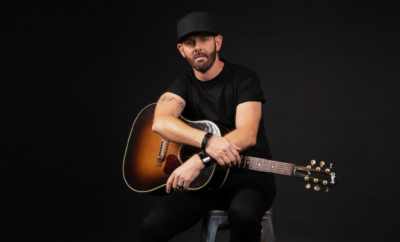
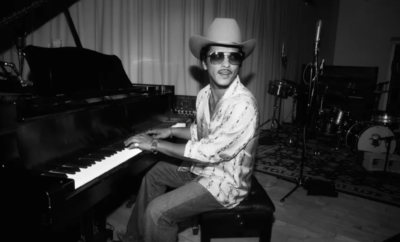
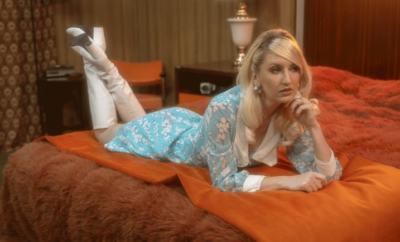
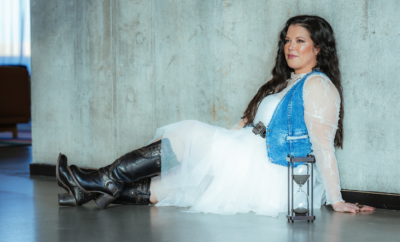
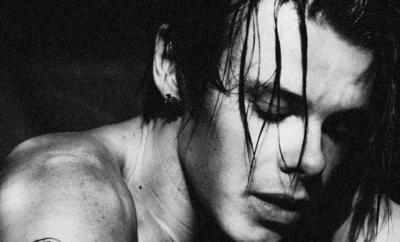
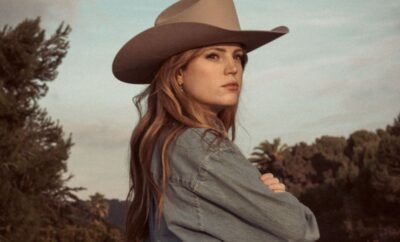

0 comments